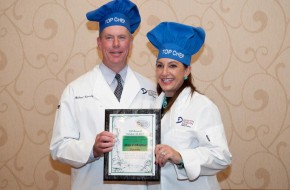Working in the field of adoption and foster care for 42 years, Marcia Moll is a social worker with a master’s degree in early childhood development. As the mother of two grown adoptive children, she understands firsthand how unconditional love for a child can transform a family. Below, she discusses a new Diakon’s foster care program, designed to touch the lives of children with special medical needs throughout eastern and central Pennsylvania.
Medically fragile foster care can change lives!
A little girl was hospitalized for six months in a children’s hospital waiting for an organ transplant. She spent most of her time being cared for by the hospital staff because her birth family was not involved. The county came to us at Diakon Adoption & Foster Care and asked if we had a family who would be a foster family until her transplant. A family stepped forward.
They had adopted a child in the past and, unfortunately, that child had passed away. This family understood that a child should live in a family environment instead of a hospital setting.
Fortunately, the little girl’s foster parents were able to visit once or twice a week. They met with the nurses and doctors and learned to care for the child. After eight months of hospitalization, she was finally able to be released to her new foster family. The family ended up adopting her, knowing full well that her survival rate—because of her age and the type of organ needed—is less than 50 percent.
Yet, the difference they made through their love and commitment is outstanding. The little girl is now living the life of a typical child—she is not lying in a hospital bed being cared for by hospital staff; rather, she has a family and has blossomed to a point no one ever expected.
Medically fragile foster care: A special child and a special
Medically fragile foster care involves a child in the foster care system who has a continuing medical condition. A child’s condition may be something easily maintained with medication and routine doctor’s appointments—such as asthma. Or it can be a more severe or life-threatening diagnosis, such as cystic fibrosis. A child may or may not be ambulatory and sometimes medical equipment may be needed for the children to live the best life they can. Although the medical conditions are diverse, the children have one thing in common: They need to be cared for by a loving family.
The program serves the needs of county children and youth workers who need foster families to care for a child with medical needs—in hopes the child will eventually be reunited with his or her birth family. Foster families ensure that the child receives the appropriate medical care while also offering stability.
The families also serve as mentors for the birth family by helping them fully understand the medical issues involved. In cases in which children cannot be reunited with their birth family, we hope the foster family can become a permanent resource and eventually adopt the child.
Medically fragile conditions arise in varying situations
In most cases, children with medically fragile conditions come to us directly from a hospital setting, often because their medical condition elevated to a point they needed hospital care. If a child is born with a medical condition, the birth parent may feel totally overwhelmed and the child may need more support than the birth family can provide.
In other cases, some children are born healthy and medical disorders develop or conditions arise as a result of abuse or neglect. If a child is suffering as a result of parental negligence, it may not be the goal to unify the child with the birth parent until the birth family receives proper services and the situation is rectified.
Weencourage any family already thinking about fostering or adopting to look within their hearts to consider a child who has a medical condition. Don’t sell yourself short. Our life experiences often prepare us for caring for a child with medical needs.
Maybe, for example, we have a family member with diabetes or asthma or another condition and we could use this knowledge in offering care for the child. But even if families do not have an understanding of a particular medical diagnosis, they just have to be open to learning. The situation may not always be easy, but what seems to help them through it is their unwavering desire to help a child.
We are here to help
At Diakon, we believe strongly in providing support services for all of its foster families. We offer general training that prepares a family to bring a child into their home. And for medically-fragile program foster families, we ensure they receive the proper training to care for a child with medical needs.
In some instances, we may arrange training provided by hospital staff, medical supply representatives or our own staff. Regardless, we work as a team. We will not place a child in a home until the family members have a level of confidence in their ability to care for the child.
In addition to training, Diakon staff is always there to help throughout the process. On a weekly basis, case managers help families organize and manage all of a child’s medical needs.
Another avenue of encouragement comes through our support groups. On a monthly basis, Diakon offers families the opportunity to meet and share concerns and advice with one another. Families often discuss referrals, doctors, nurses and how to be a strong medical advocate. We often hear that support groups are a tremendous asset to our families.
The need for families is greater than ever …
There are not enough families to meet current needs.
Counties are scrambling to find foster families who can be a mentor to birth families—which is the primary goal. In fact, 10 to 15 percent of foster children have some sort of a medical need beyond everyday parenting. But fewer than 10 percent of families are willing to take a medically fragile child. We don’t see families coming forward in large numbers, but we do see the need growing more every day.
I want to remind anyone thinking about foster care or adoption to look inside their heart. Every family who steps forward to care for a medically fragile child makes a lasting imprint on a child’s life. We are working hard to spread the word about this amazing program that serves special children with special needs.













